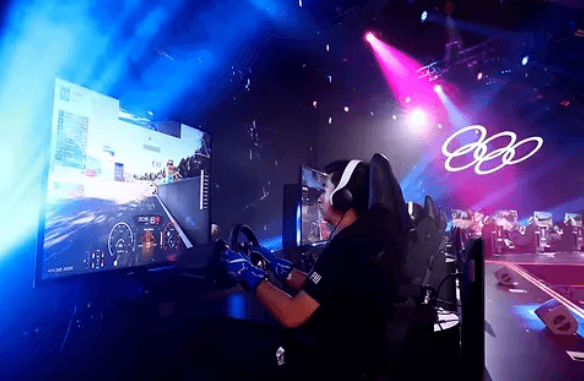The Emergence of eSports in the Olympic Games: Bridging Traditional and Digital Competitions

The integration of eSports into the global sports landscape has been rapid and unprecedented. Once viewed as a niche community of competitive gamers, eSports has evolved into a global industry, with millions of fans, professional leagues, and massive tournaments. As its popularity continues to rise, the conversation surrounding eSports’ inclusion in the Olympic Games has gained momentum. If realized, this move would mark a significant blending of traditional and digital sports, bringing a fresh dimension to the world’s most prestigious sporting event.
eSports: From Subculture to Global Phenomenon
eSports is a form of competition that primarily revolves around video games. What began in the late 1990s as small-scale competitions among hobbyist gamers has since exploded into a global industry. Games like League of Legends, Dota 2, and Counter-Strike have helped shape the industry, with major tournaments now boasting prize pools that rival some of the most lucrative traditional sports events.
In 2022 alone, the global eSports industry was valued at over $1.38 billion, with millions of viewers regularly tuning in to live-streaming platforms like Twitch and YouTube Gaming. With such a massive following, eSports has not only gained legitimacy as a sport but has also attracted sponsorships from major corporations like Nike, Intel, and Coca-Cola.
See also: AI-Enhanced Athlete Performance: How Technology is Revolutionizing Sports Training
Why eSports Belongs in the Olympics
The Olympics has long been a platform that celebrates the pursuit of excellence in sport, transcending boundaries of nationality, race, and gender. As sports evolve, so must the Olympics, which has seen the inclusion of youth-focused events like skateboarding, surfing, and sport climbing in recent editions. eSports’ inclusion in the Olympic Games can be seen as the next natural evolution of this diversification.
1. Global Reach and Inclusivity
One of the strongest arguments for eSports in the Olympics is its global appeal. Competitive gaming is not constrained by geography, weather, or even physical ability, making it one of the most inclusive sports today. Countries from all corners of the world, from South Korea and the U.S. to China and Brazil, are producing world-class eSports athletes.
Unlike many traditional sports, which may favor certain body types or physical characteristics, eSports demands mental agility, quick reflexes, and strategic thinking. It opens the doors for both men and women to compete on an equal playing field, fostering inclusivity that aligns with the Olympic spirit.
2. Technological Advancement and Modern Athleticism
The idea of what constitutes an “athlete” is evolving. While traditional sports have historically focused on physical strength and endurance, eSports tests mental resilience, hand-eye coordination, and team dynamics—traits just as essential to modern athleticism. Moreover, top-tier eSports players dedicate 10-12 hours a day to practice, physical conditioning, and mental exercises, similar to their counterparts in traditional sports.
As technology plays a bigger role in all facets of life, eSports represents the convergence of technology and sports, offering a glimpse into the future of competition. This technological evolution could help modernize the Olympics, introducing new formats and engaging tech-savvy younger audiences.
3. Youth Engagement
One of the biggest challenges the Olympics faces is capturing the attention of younger generations. Traditional sports viewership has seen declines among millennials and Gen Z, many of whom favor digital content platforms like Twitch over live broadcasts of sporting events. Including eSports in the Olympic Games would attract this critical demographic, offering a bridge between the old and new worlds of competition.
The IOC recognized this trend when it introduced events like skateboarding and surfing in Tokyo 2020. eSports, with its massive global following among young people, could help future-proof the Olympics and ensure it stays relevant to younger audiences.
Challenges of Including eSports in the Olympics
Despite its growing popularity, integrating eSports into the Olympics is not without its challenges. Critics point to several concerns that must be addressed before eSports can be fully embraced by the Olympic community.
1. Selecting Appropriate Games
One of the most significant issues is the selection of games that would be included in the Olympic lineup. Many of the most popular eSports titles, such as Counter-Strike and Call of Duty, involve violent content that might conflict with the Olympic ideals of peace and unity.
Choosing appropriate titles that reflect Olympic values is essential. Games that simulate real sports, such as FIFA or NBA 2K, may be more suitable for Olympic inclusion. Alternatively, non-violent strategy games like StarCraft or puzzle-based games could be considered as more fitting for the Games.
2. Resistance from Traditionalists
The Olympic Movement is steeped in tradition, and introducing something as modern and digital as eSports may meet resistance from purists who believe that sports should remain physically demanding. However, this argument overlooks the fact that the Olympic roster already includes events like shooting and archery, which prioritize precision and mental discipline over physical endurance.
3. Infrastructure and Logistics
Another challenge is the logistical requirements of hosting eSports competitions at the Olympic level. eSports requires high-end computing infrastructure, reliable internet connectivity, and specialized arenas. Traditional Olympic venues would need significant modifications to accommodate eSports tournaments.
However, the potential rewards outweigh these challenges. The inclusion of eSports could push the Olympics to innovate its presentation and embrace more digital formats, including interactive elements that engage remote viewers.
Current Progress and Future Outlook
While eSports has not yet made its way into the main Olympic program, there have been promising steps toward its inclusion. In 2021, the International Olympic Committee (IOC) introduced the Olympic Virtual Series, featuring digital versions of traditional sports like cycling and baseball. This was a crucial first step in integrating eSports and signaling the IOC’s willingness to explore new formats.
Additionally, the Asian Games, one of the largest multi-sport events, included eSports as a medal event in 2022. This marked a significant milestone for the recognition of competitive gaming as a legitimate sport and set a precedent for other international events, including the Olympics.
Looking forward, discussions between the IOC and eSports federations, including the International eSports Federation (IESF), suggest that the Paris 2024 or Los Angeles 2028 Olympic Games may serve as testing grounds for a full-fledged eSports category.
Conclusion
The inclusion of eSports in the Olympic Games would represent a revolutionary blending of traditional and digital sports, providing a platform that speaks to the changing nature of athletic competition in the 21st century. As eSports continues to grow in popularity and relevance, its addition to the Olympics would not only attract younger audiences but also underscore the adaptability and forward-thinking nature of the Olympic Movement.
While challenges remain, the future looks bright for eSports in the world of international competition, and its presence in the Olympic Games could bridge the gap between physical prowess and digital mastery.


